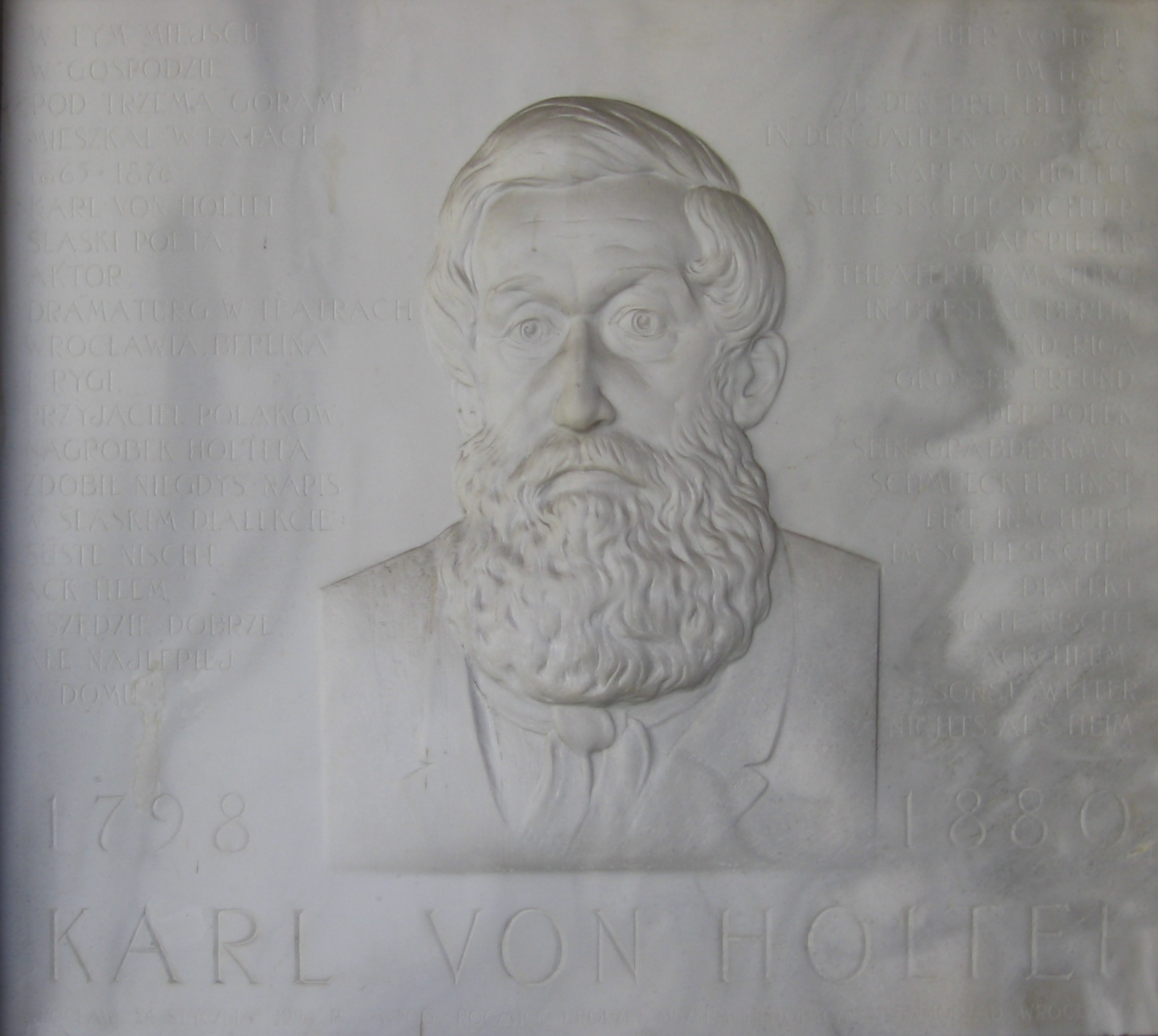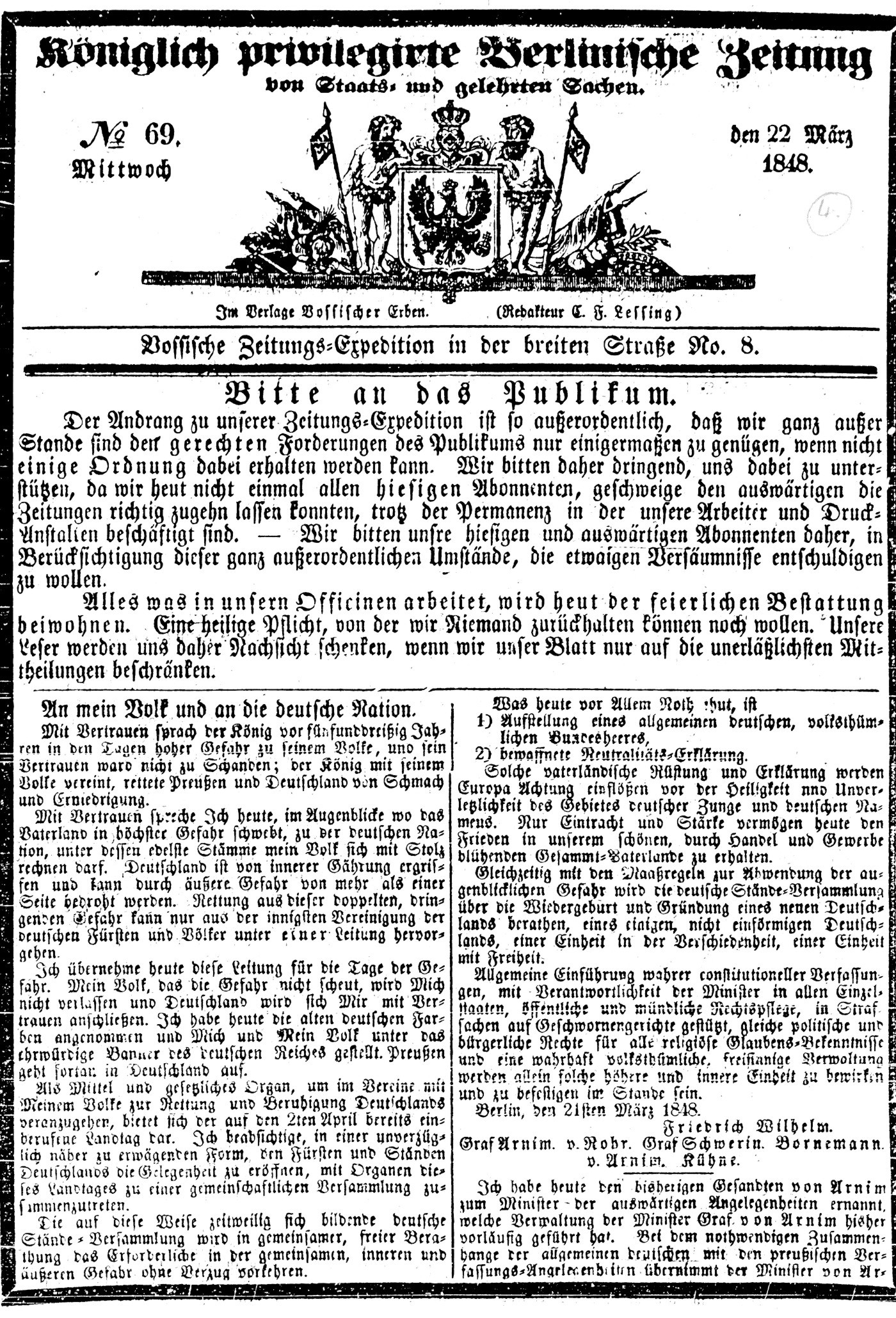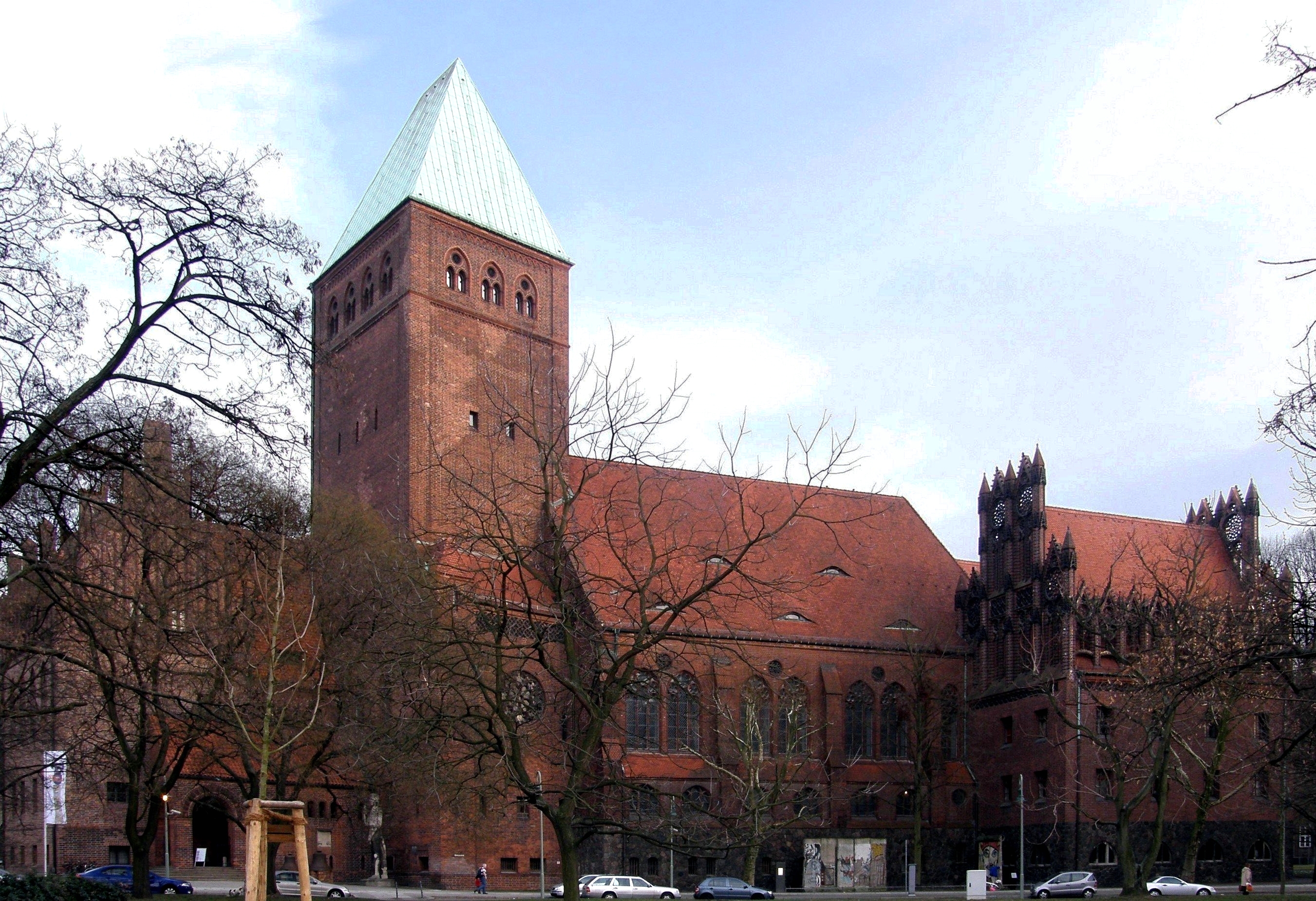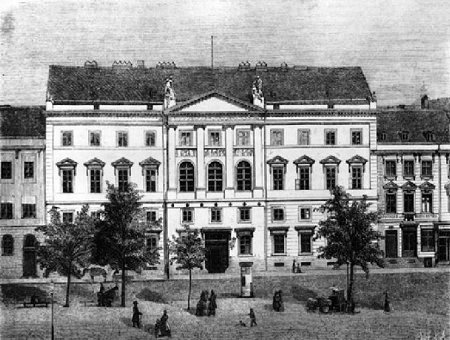|
Alexander Groschke
Friedrich Adolf Alexander Groschke (23 March 1821 – 27 January 1871) was a German civil servant and parliamentarian. Life Groschke studied law at the Ruprecht-Karls-Universität Heidelberg. In 1842, he became a member of the Corps Saxo-Borussia Heidelberg. After his studies and judicial clerkship, he entered the Prussian civil service. In 1852, as a court assessor, he was appointed Landrat of the . In January 1861 he received Karl von Holtei there, who had travelled to give a lecture engagement and wrote of Groschke: "It is impossible to be more obliging and gracious towards a travelling old singer." Groschke held the office until his death in 1871.Landkreis Frankenstein i. Schles. Administrative history and Landrat list on th [...More Info...] [...Related Items...] OR: [Wikipedia] [Google] [Baidu] |
Ruprecht-Karls-Universität Heidelberg
} Heidelberg University, officially the Ruprecht Karl University of Heidelberg, (german: Ruprecht-Karls-Universität Heidelberg; la, Universitas Ruperto Carola Heidelbergensis) is a public research university in Heidelberg, Baden-Württemberg, Germany. Founded in 1386 on instruction of Pope Urban VI, Heidelberg is Germany's oldest university and one of the world's oldest surviving universities; it was the third university established in the Holy Roman Empire. Heidelberg is one of the most prestigious and highly ranked universities in Europe and the world. Heidelberg has been a coeducational institution since 1899. The university consists of twelve faculties and offers degree programmes at undergraduate, graduate and postdoctoral levels in some 100 disciplines. The language of instruction is usually German, while a considerable number of graduate degrees are offered in English as well as some in French. As of 2021, 57 Nobel Prize winners have been affiliated with the city o ... [...More Info...] [...Related Items...] OR: [Wikipedia] [Google] [Baidu] |
Corps Saxo-Borussia Heidelberg
The Corps Saxo-Borussia Heidelberg is a German Student Corps at the University of Heidelberg. History Saxo-Borussia was established on 16 December 1820. Its motto is ''Virtus sola bonorum corona!''. In 1829 Robert Schumann became a lifelong member. During the Revolutions of 1848 in the German states the corps participated in founding the Kösener Senioren-Convents-Verband (KSCV), an association of German-speaking Student Corps. In the German Empire and in the Weimar Republic Saxo-Borussia was considered "the most distinguished corps of Christendom" – a reference to the 1st Foot Guards (German Empire). Wilhelm Meyer-Förster wrote a student novel (1885) and Mark Twain reported on his visit in A Tramp Abroad. Kurt Tucholsky taunted the corps with a poem. Unlike the befriended Corps Borussia Bonn, Saxo-Borussia has never been mocked by satirical magazine Simplicissimus. The group was prosecuted in Nazi Germany. It dissolved on 3 July 1935 under persecution, and was recreated in ... [...More Info...] [...Related Items...] OR: [Wikipedia] [Google] [Baidu] |
Karl Von Holtei
Karl Eduard von Holtei (24 January 1798 – 12 February 1880) was a German poet and actor. Life and career Karl Eduard von Holtei was born at Breslau, the son of an officer of Hussars. Having served in the Prussian army as a volunteer in 1815, he shortly afterwards entered the University of Breslau as a student of law; but, attracted by the stage, he soon forsook academic life and made his debut in the Breslau theatre as Mortimer in Schiller's ''Maria Stuart''. He led a wandering life for the next two years, appearing less on the stage as an actor than as a reciter of his own poems. In 1821 he married the actress Luise Roge (1800-1825), and was appointed theatre-poet to the Breslau stage. He next removed to Berlin, where his wife fulfilled an engagement at the Court theatre. During his sojourn here he produced the vaudevilles ''Die Wiener in Berlin'' (1824), and ''Die Berliner in Wien'' (1825), pieces which enjoyed at the time great popular favour. In 1825 his wife died; but so ... [...More Info...] [...Related Items...] OR: [Wikipedia] [Google] [Baidu] |
Auguste Crelinger
Auguste Sophie Crelinger (widowed Stich, born Düring (7 October 1795 – 11 April 1865) was a German stage actress. Life Born in Berlin, Düring gained her first stage experience as a child with the theatre company ''Urania''. On the occasion of one of these performances she also made the acquaintance of Princess Charlotte von Karl August von Hardenberg, Hardenberg (former actress Langenthal). The latter applied to the theatre director August Wilhelm Iffland for Düring and after her successful debut on 4 May 1812 as Margarete (''Die Hagestolzen''), she was engaged and remained a member of the royal court theatre there until her last performance. In 1817, Düring married the actor Wilhelm Stich (actor), Wilhelm Stich (1794-1824) and had two daughters with him: Bertha Stich, Bertha (1818-1876) and Clara Stich, Clara (1820-1865), both of whom also went to the stage, and two sons, including Gustav (1822-1848), who died of liver disease at the age of 26 in Mumbai, Bombay, East ... [...More Info...] [...Related Items...] OR: [Wikipedia] [Google] [Baidu] |
Vossische Zeitung
The (''Voss's Newspaper'') was a nationally-known Berlin newspaper that represented the interests of the liberal middle class. It was also generally regarded as Germany's national newspaper of record. In the Berlin press it held a special role due to the fact that by way of its direct predecessors it was the oldest newspaper in the city. The name went back to Christian Friedrich Voss, who was its owner from 1751 to 1795, but became its official name only after 1911. It ceased publication in 1934 under pressure from the Nazi state. Beginnings in Berlin In the early 17th century Christoff Frischmann collected and passed on to interested parties the news he received as postmaster of the Electorate of Brandenburg. Over time he systematized his news gathering, and he was ultimately given a mandate to maintain contacts throughout the "Holy Roman Empire of the German Nation" and to collect news from all important locations. His first printed newspapers came out in 1617 and appeared we ... [...More Info...] [...Related Items...] OR: [Wikipedia] [Google] [Baidu] |
Friedrich Georg Weitsch
Friedrich Georg Weitsch (8 August 1758, Braunschweig – 30 May 1828, Berlin) was a German painter and etcher. Life and work His father, Pascha Johann Friedrich Weitsch, was a well-known artist. His younger brother, , also became a painter. He initially studied with his father. After 1776, he continued his studies with Johann Heinrich Tischbein in Kassel. After studying at the Kunstakademie Düsseldorf with Lambert Krahe, he obtained a position with the lacquerware manufacturer, , where his father was a painting instructor. From 1784 to 1787, he lived abroad; first in Amsterdam, then in Rome and Florence. Upon returning home, he received an invitation from Charles William Ferdinand, Duke of Brunswick, to work as his court painter. In that capacity, he created numerous portraits of the Duke and his family; both in Braunschweig and at Salzdahlum Castle. His portraits often showed the influence of Anton Graff. In 1794, he was elected a member of the Prussian Academy of Arts, B ... [...More Info...] [...Related Items...] OR: [Wikipedia] [Google] [Baidu] |
Märkisches Museum
The Märkisches Museum ( Marcher Museum; originally Märkisches Provinzial-Museum, i.e. Museum of the Province of the March f Brandenburg is a museum in Mitte, Berlin. Founded in 1874 as the museum of the city of Berlin and its political region, the March of Brandenburg, it occupies a building on the northern edge of Köllnischer Park, facing the Spree, which was designed by Ludwig Hoffmann and completed in 1908. It is now the main facility of the ''Stiftung Stadtmuseum Berlin, Landesmuseum für Kultur und Geschichte Berlins'', the City of Berlin museum foundation, which also operates four other sites. Background In the second half of the 19th century, Berlin grew very rapidly. The foundation stone of a new, much larger town hall, the Rotes Rathaus, was laid in 1861. The changes provoked interest amongst the bourgeoisie in the city's past and in preserving what had not already been lost. The ''Verein für die Geschichte Berlins'' (Association for the history of Berlin) was fo ... [...More Info...] [...Related Items...] OR: [Wikipedia] [Google] [Baidu] |
Koordinierungsstelle Für Kulturgutverluste
The Koordinierungsstelle für Kulturgutverluste (English: "Coordination Center for Lost Cultural Assets"), also known as the ''Koordinierungsstelle Magdeburg'' (English: "Magdeburg Coordination Center"), is an institution of the German federal and state governments at the Saxony-Anhalt Ministry of Culture and is the central German institution for the documentation of lost and found cultural assets looted by the Nazis. Established in 2001, the Koordinierungsstelle's ''Lost Art Database'' documents and publishes lost and found reports by institutions and private individuals. It operates on a cooperative basis with the international Art Loss Register. History The Koordinierungsstelle was first established in 1994 in Bremen as an institution for the German states to document the institutional losses of cultural goods during the Second World War. The center thereby took over an operation that was carried out by German Ministry of the Interior since the 1950s. Originally they dealt wi ... [...More Info...] [...Related Items...] OR: [Wikipedia] [Google] [Baidu] |
Landtag Of Prussia
The Landtag of Prussia (german: Preußischer Landtag) was the representative assembly of the Kingdom of Prussia implemented in 1849, a bicameral legislature consisting of the upper House of Lords (''Herrenhaus'') and the lower House of Representatives (''Abgeordnetenhaus''). After World War I and the German Revolution of 1918–19 the ''Landtag'' diet continued as the parliament of the Free State of Prussia between 1921 and 1934, when it was abolished by the Nazi regime. History Kingdom of Prussia In the course of the 1848 Revolution, King Frederick William IV of Prussia and his Minister Gottfried Ludolf Camphausen had agreed to call for the general election of a national assembly in all Prussian provinces. The Prussian National Assembly however was dismissed by royal decree of 5 December 1848 and the king imposed the Constitution of Prussia. The constitution, though reactionary, at least provided a bicameral parliament, consisting of a First Chamber (''Erste Kammer'', called ... [...More Info...] [...Related Items...] OR: [Wikipedia] [Google] [Baidu] |
Conservative Party (Prussia)
The Conservative Party was a party in Prussia founded in 1848 from the relatively loose cooperation of conservative associations, groups and members of parliament. The party split into the German Conservative Party and the Free Conservative Party in 1876. Chairmen * Ernst Ludwig von Gerlach Ernst Ludwig von Gerlach (7 March 1795 – 18 February 1877) was a Prussian politician, editor and judge. He is considered one of the main founders and leading thinkers of the Conservative Party in Prussia and was for many years its leader in the P ... Electoral results German Reichstag/Bundestag References {{Party-stub Defunct political parties in Germany Political parties established in 1848 Politics of the German Empire 1876 disestablishments in Germany Political parties disestablished in 1876 Defunct conservative parties Politics of Prussia ... [...More Info...] [...Related Items...] OR: [Wikipedia] [Google] [Baidu] |
Prussian House Of Representatives
The Prussian House of Representatives (german: Preußisches Abgeordnetenhaus) was the lower chamber of the Landtag of Prussia (german: Preußischer Landtag), the parliament of Prussia from 1850 to 1918. Together with the upper house, the House of Lords (german: Preußisches Herrenhaus), it formed the Prussian bicameral legislature. The Prussian House of Representatives was established by the Prussian constitution of 5 December 1848, with members elected according to the three-class franchise. At first it was called simply the "Second Chamber," with the name "House of Representatives" (') introduced in 1855. Franchise From 1849, the election of representatives within the Kingdom of Prussia was performed according to the three-class franchise system. The election was indirect. In the primary election, those with the right to vote went to the ballot and, in three separate classes, chose electors, who, in turn, chose the representatives for their constituency. Several attempts to r ... [...More Info...] [...Related Items...] OR: [Wikipedia] [Google] [Baidu] |
Bernhard Mann (historian)
Bernhard Mann (born 3 December 1950) is a social scientist and Master of Public Health, professor of social pedagogy, management and coaching at the iba Koeln – University of Cooperative Education, professor emeritus of health and social management at the FHM Bielefeld – University of Applied Sciences, former professor of health management and vice-president at the University of Applied Sciences Bamberg, adjunct professor of public health, social medicine and sociology at the University of Bonn, University of Koblenz-Landau, at the Berlin School of Public Health – Charité, Medical University, at several universities of educational cooperation as well as of applied sciences like in Bochum, Düsseldorf, Essen, Koeln and Wuppertal. He is public-health-coordinator of the German program at the IESS – Institut Européen des Sciences de la Santé Casablanca, Maroc. Education and career After college education in London and Paris and the university-entrance diplom ... [...More Info...] [...Related Items...] OR: [Wikipedia] [Google] [Baidu] |

.jpg)







